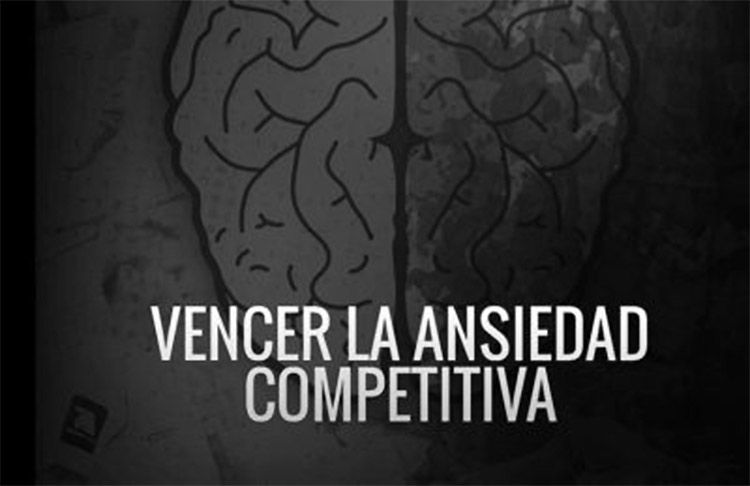Padel World Press .- In competitive sport, the person with high anxiety is usually more prone to experience feelings of emotional instability and lack of control both in the technical and tactical. This situation depends on how an individual interprets the particular competitive circumstances.
In this new article, we are going to deal with anxiety in competition and, for that, we define the concept of anxiety first. "Anxiety is an emotional response or set of responses that encompasses: subjective or cognitive aspects of an unpleasant nature, bodily or physiological aspects characterized by a high degree of activation of the peripheral system, observable or motor aspects that tend to involve poorly adjusted and poorly adaptive behaviors .
Anxiety has a component of thought (for example, worry and apprehension) called cognitive anxiety, as well as a component of somatic anxiety, which constitutes the degree of perceived physical activation.
At present, it is estimated that an 20,5% or more of the world population suffers from an anxiety disorder, usually without knowing it. "
Its interpretation will be influenced by various factors such as previous experiences, capacity and training in stress management. There is not a single athlete who has not experienced, at some point, some pre-competitive, competitive or post-competitive anxiety symptom. The purpose is not to get to not feel anxiety, but to know how to handle it.
Situations that demand anxiety in sport
The main situations of a padel match where anxiety symptoms are usually given are the following:
a) The hours or moments before a competition.
b) The beginning of a sports or match performance.
c) In the meeting, when we are going to dispute some point that we consider key.
d) After committing an error that we consider important for the future of the crash.
e) When we feel we are having a bad game streak.
f) When my partner is having a bad streak.
g) When there is an arbitration error or an unexpected situation occurs during the commitment.
h) When we are not giving what we expected to happen.
i) When my partner has a negative and critical attitude with our game.
In each of these situations we can perceive symptoms of anxiety and, in reality, it is very normal for them to occur ... What we must do is try to put in place psychological mechanisms that attenuate these symptoms so that our performance is not impaired.
Some psychological mechanisms or tools that will be able to cope with the symptoms of anxiety will be the following:
- Learning and training relaxation techniques: Learning to relax and use this tool before and during games is essential to be able to stop the symptoms of anxiety.
- The handling of times between points: If in moments of anxiety and competitive stress we are more accelerated between points, the situation can only get worse. You have to try to have an adequate control of the time when the ball is not in play and to handle it in an intelligent way.
- The use of breathing: When we compete, the rhythm of breathing when hitting the ball is important, but even more so when the point ends. It is important to know what kind of breathing we have to carry out according to what is needed: A breathing with the chest and explosive if I want to activate and a breathing with the stomach and prolonged if I want to relax.
- Thought control: Knowing where to focus our thinking is essential if we want to minimize the feeling of emotional instability or anxiety. If our thinking is focused on the emotional section, that is, on what we feel at that moment, we will not be well focused and we will have problems. If we manage to direct our thoughts towards tactical aspects of the game, everything will be better.
- Tolerance and respect for the partner: In a situation of anxiety, the worst thing we can do is to separate ourselves psychologically from our partner or to enter into conflict with him / her. We must assume situations of competitive stress as naturally as possible, offering our partners solutions, being tolerant and trying not to lose sight of the concept of 'team' on the court.
An athlete is not a robot that can control all kinds of situations. Anything that happens during a match immediately provokes a series of emotions. The problem does not lie in feeling them, but in that they last over time ... For this reason, it is important to know how to start up psychological mechanisms that help an altered emotional state return to normal. We can only achieve that with will and training.
Óscar Lorenzo García
Twitter: OLorenzoRome
* You can follow all the news of the world of paddle in our profiles of Facebook y Twitter as well as subscribe to our Newsletter .













